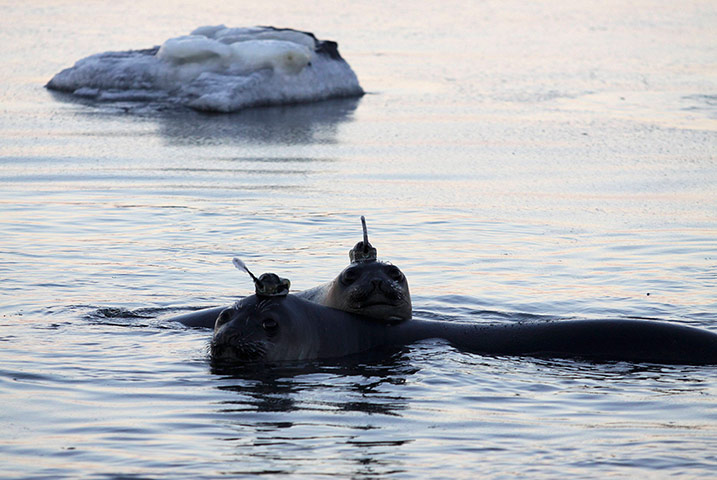TOP STORIES
Warmer winters bedevil moose in Minnesota
Scientists aren't sure, but a blood-sucking tick may be one cause of the species' decline. As many as 120,000 ticks have been found on a single moose.
Minnesota's decision last month to end its moose-hunting season because of the animal's rapidly declining numbers in the state has made the gangly, iconic symbol of cold northlands a new player in the debate over climate change.
Some scientists attribute the threats to climate change; others say more study is needed. Doug Inkley, a senior scientist at the National Wildlife Federation, says moose are "the canary in the coal mine. As a large-bodied animal that needs cool temperatures, it is particularly susceptible to climate change."
USA Today - www.usatoday.com
01 Mar 2013
C Raasch
Location: Minnesota, USA
What’s Eating You, Caribou? Investigating the Gastrointestinal Parasites of West Greenland Caribou
Caribou and reindeer (Rangifer tarandus spp.) are a key component of many Arctic ecosystems and are an important resource for northern communities. Gastrointestinal parasites, like roundworms (Nematoda) and tapeworms (Cestoda), are common in these animals, but we know little about the true diversity present and how they might be affecting caribou health.
healthywildlife.ca - www.healthywildlife.ca
01 Mar 2013
Location: Greenland
OTHER WILDLIFE HEALTH RELATED NEWS
- 51 spotted deer die in Kanha park [Kanha National Park, India - Map It
 ]
] - More Wildlife Society videos interviews with wildlife professionals
- City removing dead fish from beaches [Sanibel, Florida, USA - Map It
 ]
] - Blue-green algae outbreak closes Lysterfield Lake [Oklahoma, USA]
One Health News Corner
- Mutation Altering Stability of Surface Molecule in Acid Enables H5N1 Infection of Mammals
- Spike in bird flu deaths worries health officials
- Rat-borne disease, a deadly threat [Leptospirosis]
- Livestock virus found on 1,500 farms [Schmallenberg]
- Elephant seals help scientists solve climate mystery [The animals, fitted with head sensors, have helped to provide data from the Antarctic's most inaccessible depths]
- Newcastle disease virus shows promise as safe prostate cancer treatment
- Zoologger: The only virus with an immune system [New Scientist]






No comments:
Post a Comment